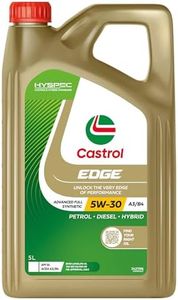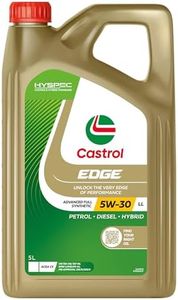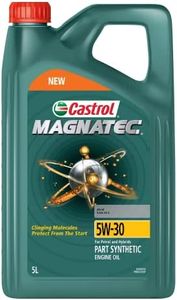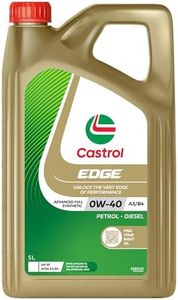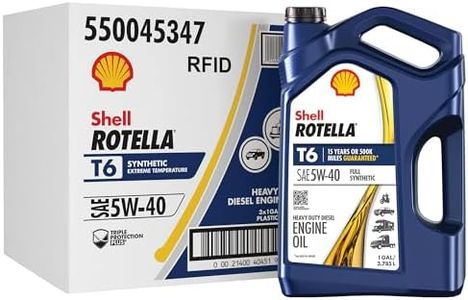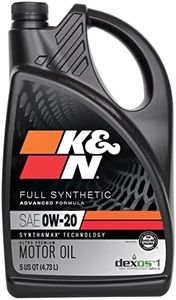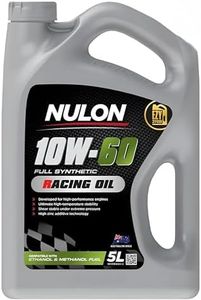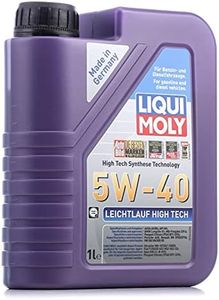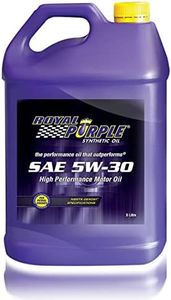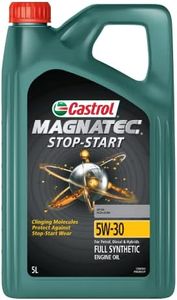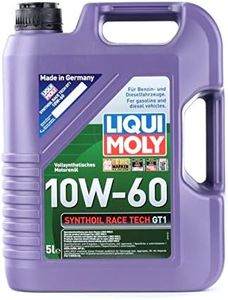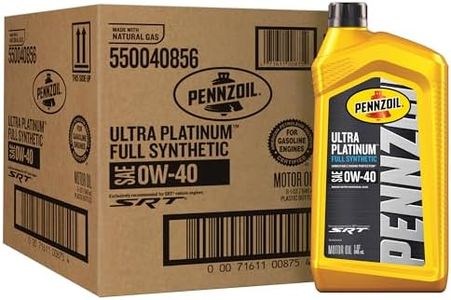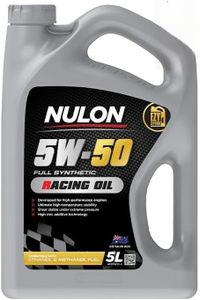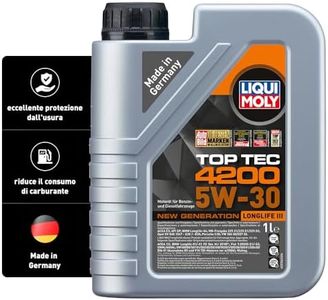We Use CookiesWe use cookies to enhance the security, performance,
functionality and for analytical and promotional activities. By continuing to browse this site you
are agreeing to our privacy policy
10 Best Synthetic Motor Oils
From leading brands and best sellers available on the web.By clicking on a link to a third party's website, log data is shared with that third party.
Buying Guide for the Best Synthetic Motor Oils
When it comes to choosing a synthetic motor oil, there are several factors to consider to make sure your vehicle's engine runs smoothly, efficiently, and lasts longer. Synthetic oils offer better performance, protection, and temperature resistance compared to conventional oils. However, not every synthetic oil is made the same, and matching your vehicle's requirements and driving habits to the right type of oil is important. Familiarize yourself with the main specifications and learn how your vehicle usage influences your best choice.Viscosity GradeViscosity grade refers to how thick or thin the oil is at different temperatures. It's usually labeled in numbers like 5W-30 or 0W-20. The first part (like 5W) indicates how the oil flows at cold temperatures—a lower number means better cold starting in winter. The second number (like 30) shows how the oil behaves at engine operating temperature—a higher number means the oil remains thicker when hot. Choosing the right viscosity keeps your engine protected from wear and ensures good flow in all conditions. Always check your car’s manual for the recommended viscosity, but if you live in very cold or very hot climates, you might benefit from oils designed for those extremes.
API/ACEA CertificationAPI (American Petroleum Institute) and ACEA (European Automobile Manufacturers Association) certifications let you know that the oil meets certain quality and performance standards. These standards are important because they ensure that the oil will do a proper job of protecting and cleaning your engine. Look for the specific API or ACEA rating recommended by your car's manufacturer, as using the wrong type might reduce engine efficiency or increase wear.
Additive PackageAdditives are special chemicals mixed into synthetic oil to enhance its performance. They can provide better cleaning power, extend oil life, reduce engine wear, and improve fuel efficiency. Oils may have additives for high-mileage vehicles, detergents for cleaning, or agents for better high-temperature protection. If you have an older engine, look for high-mileage blends; if you drive in demanding conditions, pick oil with robust protective additives.
Oil Change IntervalThis refers to how long you can go between oil changes with a given synthetic oil. Some oils are engineered for longer intervals, supporting 10,000 miles or even longer between changes, while others are standard. Longer intervals can be convenient but only choose extended-life oils if you drive long distances regularly or your manufacturer suggests it. If you mostly make short trips or use your car in tough conditions (like towing or extreme temperatures), you may benefit from oils changed more frequently.
Compatibility with Engine TypeSome synthetic oils are designed specifically for certain types of engines—like turbocharged, diesel, or engines with direct injection. Using oil tailored to your engine type ensures optimal protection and performance. For example, diesel engines need oils that can handle higher soot levels, while turbo engines benefit from oils with stronger heat resistance. Always check your vehicle’s specifications to make the right match.
